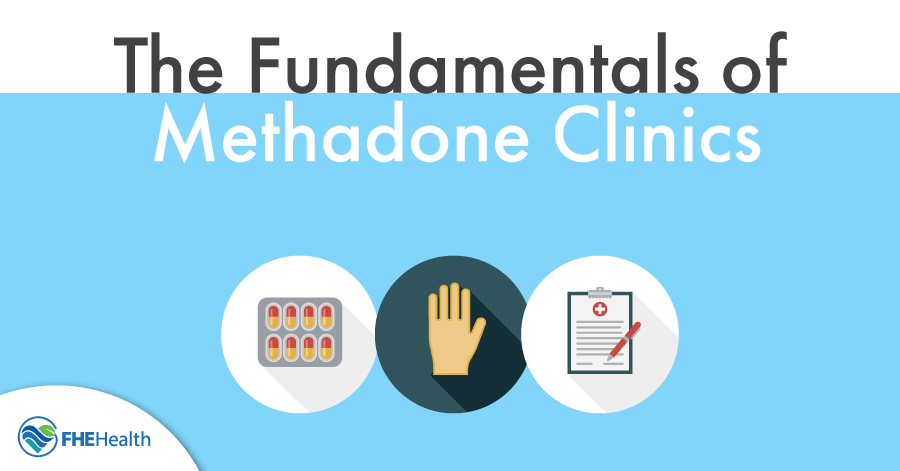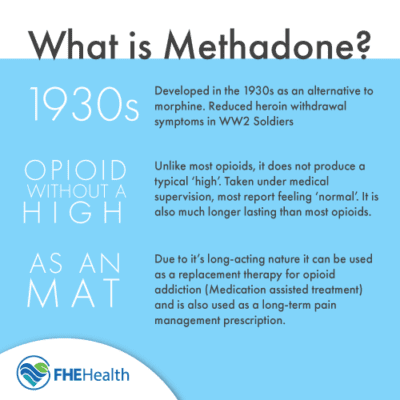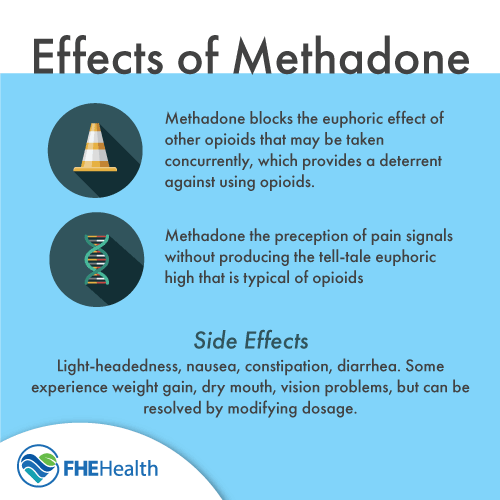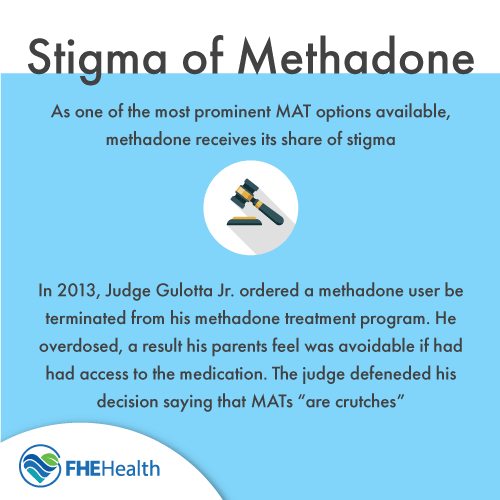
|
|
Whether you’re currently struggling with an addiction, care about an addict or simply want to know more about what’s being done to deal with the opioid crisis, chances are good you’ve heard about methadone clinics.
How Do Methadone Clinics Work?
In the United States, an estimated 350,000 people receive daily methadone doses from one of the 1,460 federally-regulated methadone clinics. In spite of the increased adoption of methadone as a treatment for addiction and the ever-growing opioid death rate in America, methadone clinics continue to be the target of protests and debates over the belief that methadone clinics are simply government-approved drug dealers.
What Is Methadone?

Methadone is a long-acting synthetic opioid analgesic that’s used to treat severe pain, for example, for patients with advanced forms of cancer. It’s also widely used to treat opioid addiction; in the right dose, methadone is highly effective in reducing cravings and withdrawal symptoms among people who are addicted to fentanyl, heroin, hydromorphone and oxycodone.
Unlike opioid drugs, methadone doesn’t produce the typical high that opioids do. Following the initial induction period, patients who receive methadone under medical supervision at a treatment clinic typically report that they feel normal. Because methadone has a much longer half-life than opioids, patients usually take a dose once daily.
Methadone was developed in the late 1930s by German chemists who were searching for a powerful nonaddictive painkiller that could be used as an alternative to morphine. First named Hochst-10820, methadone was successfully used to reduce heroin withdrawal symptoms among WWII soldiers in the United Kingdom during the 1940s, and it became legal as a prescription medication in the United States in 1947.
What Are the Effects of Methadone?

While methadone is chemically similar to addictive opioids such as heroin and morphine, the effects it has on users are significantly different.
The most notable characteristic of methadone is that it is highly effective in altering how the brain and the nervous system respond to pain — it lessens the perception of pain signals without producing the tell-tale euphoric high associated with traditional opioids. Methadone also blocks the euphoric effect of other opioids that may be taken concurrently, which provides people struggling with opioid use disorder a powerful deterrent against taking codeine, oxycodone or other opioids while on methadone.
When prescribed by a licensed addiction specialist and taken in the proper dose, methadone tends to produce few side effects; however, users may feel uncomfortable during the first week or so of their methadone treatment. Symptoms like light-headedness, nausea, constipation and diarrhea are relatively common, but the intensity of these symptoms is significantly milder than patients with OUD would experience if they went “cold turkey” off all forms of opioids.
Some people who use methadone report experiencing weight gain related to water retention and increased caloric intake, while others complain of dry mouth, difficulty urinating and vision problems — all issues usually resolved by modifying the dose of methadone.
Methadone and Addiction Treatment
Methadone has been widely used in addiction treatment programs since the 1960s following the establishment of the world’s first methadone maintenance treatment program in Vancouver, Canada, in 1959. During the 1960s, methadone was used to treat heroin addicts in New York.
In 1964, the U.S. Food and Drug Administration approved methadone for use in medication-assisted treatment programs for people diagnosed with OUD. Methadone is one of only three drugs (the others are buprenorphine and naltrexone) that are FDA-approved for the treatment of OUD.
In the United States, methadone is often distributed under the brand names Dolophine (tablets) and Methadose (concentrated liquid). When dispensed at a methadone or MAT clinic, methadone is often mixed with juice and consumed on-site. This ensures patient compliance with the prescription and prevents the resale of methadone on the street.







